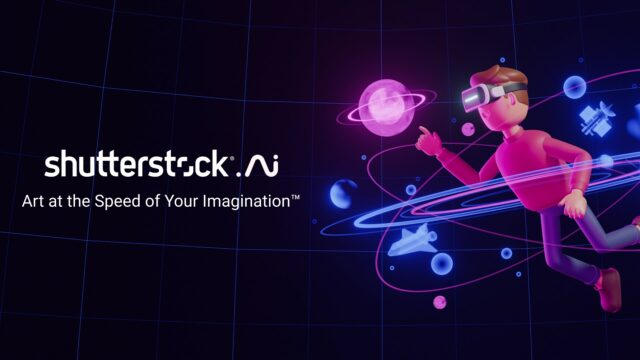Adobe has clarified that its users files are not being used to train generative AI systems, while Shutterstock will supply Meta an image library to train ‘develop, train and evaluate its machine learning capabilities’.

The latest updates co-incide with Getty suing AI image generator, Stable Diffusion, and shows each photo industry corporation is attempting to establish how to deal with AI generators and their valuable database. On one hand they present lucrative business opportunities as they require to be trained using large image datasets; and on the other hands they may compete with stock imagery.
Editor’s note: Some reader’s may be feeling inundated with AI-centric articles. It’s a hot-button topic that’s rapidly developing with real potential impact on photographers. That’s why we’re combining two standalone stories into one, as we did with the article, ‘Do AI generators infringe copyright‘
Adobe is analysing your content

Adobe was slammed for adding a ‘Content Analysis’ section to its privacy policy which, unless opting out, states user content may be ‘analysed’ for techniques such as machine learning. With AI image generators being big news right now, many speculated this meant Adobe was automatically opting users in to train these technologies.
It was first flagged on January 5 by a Twitter user, and went viral across social media. Adobe’s Content Analysis FAQ states that files stored locally on a users device are not ‘analysed’ – a process which involves aggregating user content with other content, and using this aggregated content to train our algorithms’.
It’s possible some content is manually reviewed by people, which may concern Creative Cloud users who value their privacy. The FAQ doesn’t go into details regarding what AI is being trained. Instead, it provides a definition of ‘machine learning:
‘A subset of artificial intelligence in which a computing system uses algorithms to analyze and learn from data without human intervention to draw inferences from patterns and make predictions. The system may continue to learn and improve over time as it receives more data.’
Adobe’s Chief Product Officer, Scott Belsky, has now responded after widespread user backlash.
‘We have never, ever used anything in our storage to train a generative AI model, Belsky told Bloomberg on January 17. ‘Not once.’
Belsky clarified the ‘decade-old policy’ is for improving Adobe software and features. ‘We are rolling out a new evolution of this policy that is more specific. If we ever allow people to opt in for generative AI specifically, we need to call it out and explain how we’re using it.’
Belsky describes the reaction from users as a ‘wake-up call’, and reiterated ‘we have to be very explicit about these things’.
Shutterstock signs Meta deal
Shutterstock has ‘expanded the relationship’ with Facebook and Instagram’s parent company, Meta, which revolves around training machine learning.
Here’s an excerpt from Shutterstock’s press release:
‘With its industry-leading library of high-quality content, its focus on bringing new creative offerings to market, and its expertise in creating a scaled ecosystem that compensates and connects contributors to creators, Shutterstock is the ideal partner for industry leaders investing in creating new experiences powered by AI. By tapping into Shutterstock’s collection of millions of images, videos and music, Meta plans to use these datasets to develop, train and evaluate its machine learning capabilities.
This expanded relationship with Meta is a part of Shutterstock’s greater strategic vision to be at the center of technology, design, content and innovation. Shutterstock is one of the first companies to pay artists for their contributions to training machine learning models, and it has proven to be a trusted partner to those entering the space by ensuring the responsible creation and licensing of content with a transparent IP transfer.’
Shutterstock’s CEO, Paul Hennessy, states he was the company to ‘ automate the busywork required to complete creative projects and help creators understand how their work is resonating’.
‘Our content will remain at the heart of these advancements both on and off our platform, and we will continue to shape the future of generative AI in a way that is ethical and artist-centric.’ he said.
Shutterstock recently integrated OpenAI’s Dall E 2 image generator into the platform last October, after licensing portions of the archive to train the AI. Shutterstock also set up a ‘Contributor Fund’ to reimburse contributors whose work trains text-to-image AI models.
The existing relationship with Meta includes integrating the Shutterstock API into Facebook ads.





Be First to Comment